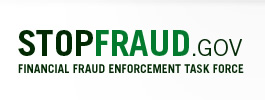
U.S. Department of Justice
United States Attorney
Southern District of New York
Wednesday, July 25, 2012
Oregon-Based Research Consultant Pleads Guilty in Manhattan Federal Court to Insider Trading Charges
Defendant Passed Inside Information to His Hedge Fund Clients
NEW YORK – John Kinnucan, the president of Broadband Research LLC, an investment research firm located in Portland, Ore., pleaded guilty today to conspiracy and securities fraud charges in connection with his participation in an insider trading scheme in which Kinnucan obtained material, non-public information (inside information) about publicly traded companies and sold that information to Broadband’s clients, including hedge funds and money managers (BBR clients), announced Preet Bharara, the U.S. Attorney for the Southern District of New York. Kinnucan pleaded guilty before U.S. District Judge Deborah A. Batts.
U.S. Attorney Bharara said: “John Kinnucan engaged in an orchestrated campaign to obstruct a federal investigation into his illegal conduct, the very conduct for which he now stands convicted. Today the truth came out of his own mouth, and he admitted that he is a securities fraudster, and his attempts to obstruct justice in a repugnant and disturbing manner were ultimately fruitless. Briefly a cause célèbre as some called him, Mr. Kinnucan is now a felon facing sentencing for his insider trading crimes.”
According to the charging documents in the case as well as statements made by Kinnucan during the plea proceedings:
From 2008 through 2010, Kinnucan obtained inside information about publicly traded companies, including quarterly revenue numbers, and sold that information to BBR Clients. The inside information came from co-conspirators who were employed at publicly traded companies, such as F5 Networks Inc., Sandisk Corporation and Flextronics International Ltd.
In order to develop and maintain his network of public company sources, Kinnucan befriended public company employees and offered to provide some of them with consulting fees and/or other non-monetary consideration. Specifically, Kinnucan paid one of his sources approximately $27,500 for inside information, and invested $25,000 in the business of another source.
After he obtained inside information from public company sources, Kinnucan provided it to BBR clients with the understanding that they would use the information to execute securities transactions. For example, in June 2010 and early July 2010, Kinnucan repeatedly sought information about F5’s quarterly financial results for the quarter ending on June 30, 2010, from an F5 employee. In a telephone call on the morning of July 2, 2010, Kinnucan informed the F5 employee that the guidance F5 previously provided to the investment community for the quarter which ended June 30, 2012, was $220 million. The F5 employee then told Kinnucan that the unadjusted revenue number was actually $232 million, confirming that F5 would beat Wall Street’s consensus estimates. Within minutes of the July 2, 2010, conversation with the F5 employee, Kinnucan called numerous BBR clients to provide them with the information. After receiving the F5 Inside Information from Kinnucan, at least two BBR Clients executed securities transactions in F5 based, in whole or in part, on Kinnucan’s inside information, earning profits and avoiding losses of more than $1.5 million.
In order to attract and retain BBR clients, and in an effort to hide the true identity of his public company sources, Kinnucan lied to existing and prospective BBR clients about the sources of his inside information, including by falsely stating that none of his sources was employed at public companies and that he did not pay his sources.
In an effort to obstruct the ongoing federal criminal investigation, from December 2011 through February 2012, Kinnucan made nearly 25 threatening telephone calls to prosecutors and agents responsible for the investigation of his unlawful activities. In these telephone calls, Kinnucan made repeated references to genocide, sexual and other forms of violence and threatened physical harm to one of the prosecutors handling this matter. He also made multiple telephone calls to one cooperating witness, and attempted to contact another in an effort to intimidate and harass them.
* * *
Kinnucan, 55, of Portland, pleaded guilty to conspiracy to commit securities fraud (count one) and two counts of securities fraud (counts three and four). He faces a maximum term of 45 years in prison, a maximum fine of $5 million or twice the gross gain or loss arising from his conduct. In addition, he agreed to forfeit $164,000 to the United States. He is scheduled to be sentenced by Judge Batts on Jan. 15, 2013, at 11:00 a.m.
Mr. Bharara praised the investigative work of the FBI. He thanked the U.S. Securities and Exchange Commission for its assistance in this matter.
This case was brought in coordination with President Barack Obama’s Financial Fraud Enforcement Task Force (FFETF), on which Mr. Bharara serves as a Co-Chair of the Securities and Commodities Fraud Working Group. The task force was created in November 2009 to wage an aggressive, coordinated and proactive effort to investigate and prosecute financial crimes. With more than 20 federal agencies, 94 U.S. attorneys’ offices and state and local partners, it’s the broadest coalition of law enforcement, investigatory and regulatory agencies ever assembled to combat fraud. Since its formation, the task force has made great strides in facilitating increased investigation and prosecution of financial crimes; enhancing coordination and cooperation among federal, state and local authorities; addressing discrimination in the lending and financial markets and conducting outreach to the public, victims, financial institutions and other organizations. Over the past three fiscal years, the Justice Department has filed more than 10,000 financial fraud cases against nearly 15,000 defendants including more than 2,700 mortgage fraud defendants. For more information on the task force, visit www.stopfraud.gov .
This case is being handled by the office’s Securities and Commodities Fraud Task Force. Assistant U.S. Attorneys Katherine R. Goldstein, David M. Massey and Christopher L. LaVigne are in charge of the prosecution.



